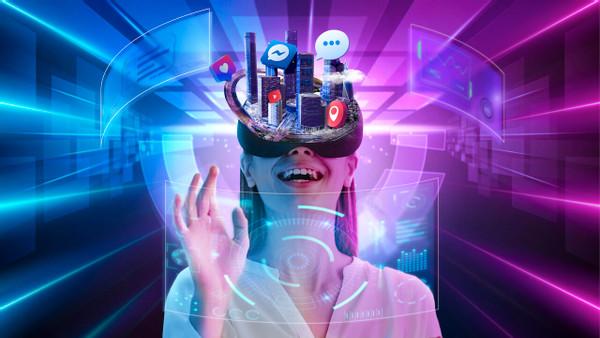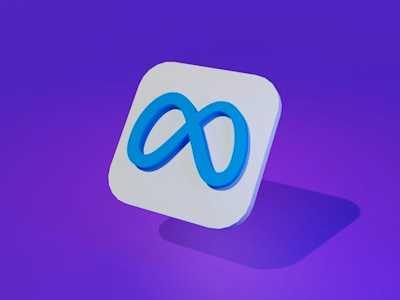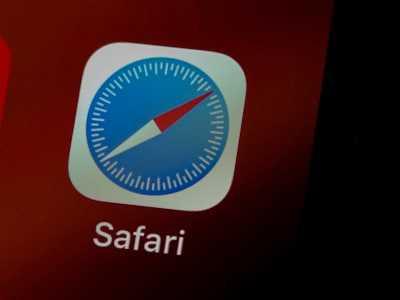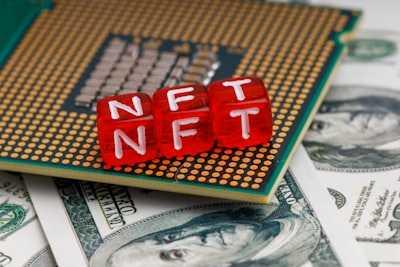Payments, Payment Rails, and Blockchains, and the Metaverse — MatthewBall.vc
Curated from: matthewball.vc
Ideas, facts & insights covering these topics:
32 ideas
·7.8K reads
13
Explore the World's Best Ideas
Join today and uncover 100+ curated journeys from 50+ topics. Unlock access to our mobile app with extensive features.
The Tenets Of Metaverse
the Metaverse has been positioned as both a successor state to the mobile internet, as well as a platform for human leisure, labour, and existence at large.
The success of this vision depends on whether the Metaverse has a thriving economy. That includes competition and a constant cycle of disruption/displacement, a large number of profitable enterprises (especially small-to-medium businesses), capital mobility and strong consumer spending.
34
646 reads
The Existing Payment Rails
The most common of the existing payment rails in the US are ACH (“Automated Clearing House”), Fedwire, CHIPs (“Clearing House Interbank Payment System”), Credit Cards, PayPal, and peer-to-peer payment services like Venmo. These rails have different requirements, merits, and demerits.
32
480 reads
Limitations Of Wire Transfer
Wires can only be used between (and thus through) banks, are only available during non-holiday weekdays and during business hours, transactions are not reversible, cannot be used to request funds (so it doesn’t work for credit card payments, invoices, etc.), and have high sending fees (e.g. Chase pays
33
390 reads
Existing Payment Rails: Credit Cards
Credit cards are another key payment rail. They involve swiping a physical card (or entering credit card information), after which a credit card machine or remote server captures account information and digitally sends it to the merchant’s bank, which then submits it to the customer’s credit card provider, which either grants or denies the transaction. This process takes one to three days and typically costs merchants 1.5–3.5% of the transaction.
32
347 reads
Digital Payment Platforms
Digital payment networks include PayPal, Square, and the Cash App. Individual accounts are primarily funded via ACH or credit card, at which point the platforms then serve as a centralized/single bank used by all accounts. As a result, all transfers between users of the same payment platform are effectively just reassignments of money held by the platform itself.
Payments are instantaneous and when money is sent between friends and family, these platforms typically charge no fees. But when a business is paid, 1.5–3% transaction fees to the business are common.
32
326 reads
The Fight to Control Payments in the Metaverse
In the virtual world, the economy primarily involves goods that only exist virtually, which are bought via purely digital transactions.
This economy is also large. Roughly $54B was spent on virtual goods, skins, and lives last year, compared to $42B at the movie box office and $30B on recorded music in 2019. It also poses no systemic financial risk, does not play a critical role in society, and has thousands of market participants and a dozen competing platforms. This should lead to creativity, innovation, and competition in payments.
33
328 reads
The State Of The Virtual Payment Rail State
In truth, the “rails” of the “virtual economy” today are much worse than those of the “real world.” They’re more expensive, cumbersome, and slow to change.
As an analogy, the current technology is based on precedents that are closer to the founding of CHIPs in the 1970s than either PayPal or the iPhone.
31
296 reads
Gaming Consoles Turning Into Subscription Platforms
PlayStation and Xbox users need PlayStation Network and Xbox Live IDs to access online games and must usually pay additional monthly fees to access these games, too. Player entitlements (trophies and game purchases) are also forever locked to these platforms. If you buy Call of Duty: Modern Warfare on PlayStation, you can only ever access it, and many of the achievements from beating it, via PlayStation.
33
277 reads
The Network Effect
A household can just as easily buy an Android as an iPhone, or a PlayStation not an Xbox. But in the digital/virtual era, market power comes primarily from network effects and scale. And each of these platforms works hard to lock developers and users to their platforms by forcibly bundling separate businesses, such as hardware, drivers/APIs access, software distribution, payment solutions, services, identities, and entitlements.
34
280 reads
No Rich 3D Effects In iOS Browsers
Apple uses its control over the App Store to prevent iOS browsers (whether made by Apple, such as Safari, or others, like Google Chrome) from using most of WebGL, a JavaScript API that allows for complex browser-based 2D and 3D rendering.
Apple claims this restriction is for device performance, as native apps typically outperform browser-based experiences that must speak to native drivers through “translators.” However, this policy conveniently prevents developers from making rich games without Apple’s tools which elude its store fees.
32
243 reads
NFC Double Standard
Apple prohibits applications from using its NFC chips for payments, thereby ensuring Apple Pay is the only digital payment solution that can use tap and go. Apple claims this is for security, but third-party developers, such as Marriott and Ford, are able to access the Apple NFC API so users can open doors. This seems like a far more dangerous use case than a $5 coffee.
32
242 reads
Changing Rules Using The Metaverse
The very premise of the Metaverse presumes that the “next” platform shifts from hardware-based operating systems and hardware-centric experiences to persistent and ubiquitous virtual simulations. We already see this today. The most popular games in the world, such as Fortnite, Roblox, and Minecraft, are designed to run on all endpoints, and none requires nor succeeds because of specific hardware (nor are they optimized for any specific devices, either).
32
225 reads
The New Age Game
If the value in the Metaverse will be primarily driven through virtual worlds and virtual creations, rather than better phones, then we want the most profits going to developers of the virtual platforms and the developers on them. However, you can’t access the Metaverse except through hardware, and every hardware player is fighting to be the (or at least a) payment gateway to the Metaverse.
This is why Facebook, which lacks a major operating system, is investing so heavily in Oculus. And why Snap is developing its own AR hardware, while defending Apple’s 30% take.
34
223 reads
The Undeserved Cut
Apple does not deserve 30% of a transaction for virtual real estate or virtual avatars that are created by developers that don’t use any of Apple’s standards, built on a virtual platform that runs on nearly every device in the world, and not integrated into any of Apple’s products — all because the end-user has an iPhone (which they might have bought for Apple Photos, iMessage, or superior hardware). Nor should Apple take 30% of a sale price in the event those assets are traded. Or 30% of virtually provided labor or kickstarter-like loans.
32
204 reads
The Web Browser Rocks
All of the major NFT platforms and blockchain-based worlds are browser-based and lack console releases and mobile applications. These console and mobile platforms control their browsers and, as mentioned earlier, do not support common (and open) standards for complex rendering, rich user input, and more. As a result, developers are forced to choose between impractical fees or mediocre experiences.
31
208 reads
Yes To WeChat, No To Facebook
In the West, these systems would normally be at the mercy of the hardware gatekeepers. However, Tencent grew so powerful so rapidly in China that it even holds leverage over Apple, who allows it to process payment for its Mini Programs without taking a cut. Notably, Facebook asked for the same permissions in the West but was denied — even if it limits payments only to small tips for on-platform creators and waives its own cut.
31
216 reads
The Challenges of the Proto-Metaverse Economy
Beyond various platform fees, the Metaverse economy is adversely affected by the policy decisions of various virtual platforms and publishers. These policies make it harder for users to spend money, maroons user spending, penalizes users for spending diversity and or using multiple platforms, and limits the utility of all purchases and constrains total investment.
32
220 reads
Expected Obsolescence
Consumer spending today is constrained by the knowledge that no games last forever. Think, as an example, of anything you might buy on holiday but can’t bring home in your suitcase — a Boogie Board, a water bottle, a costume for Día de los Muertos. Expected obsolescence always constrains spending.
31
202 reads
The New Game Economics
Open economies, trading, and increases to commercial item value inevitably trend towards play-to-earn mechanics or behaviors, which can quickly devolve into “work” that ruins a game’s sense of fun and fairness. And the larger the Metaverse economy and more firm the ownership rights, the harder it is for a developer to correct this. There is a reason why, today, almost all of the major NFT/blockchain-based “games” are actually centered on collecting or speculation, rather than more traditionally-defined gameplay.
31
194 reads
Transversing Towards The Metaverse Business Model
Over time, developers will figure out how to support “Metaverse” business models. And they’ll use the Metaverse’s comparatively larger economy to quickly surpass more “legacy” game makers. Free-to-play gaming, after all, was once considered a radical business model that at best would lead to lower revenues for a given game and at worst cannibalize the industry. Instead, it proved to be the best way to monetize and a core driver behind video gaming’s cultural ascendance.
31
180 reads
New Solutions For Upcoming Problems
Some economic solutions will likely emerge to facilitate the transition to an open Metaverse economy, too. For example, developers might bake degradation into an asset’s code — this skin works for 100 hours of use, or 500 games, or three years total, during which it slowly wears. Alternatively, users might have to pay an additional fee to bring an item from one publisher’s title to a competing publisher’s (just as many goods have import duties in the ‘real world’). Or pay more in the first place for an “interoperable edition.”
33
173 reads
The Potential of Blockchain and the Metaverse
A decentralized database isn’t needed to prove or manage asset ownership (if the NBA or Disney or Valve said who owned an image file or virtual currency, everyone would believe them). Nor is it needed to safely and quickly transfer money (Alipay and PayPal move billions per day via purely digital networks).
What matters is not whether the blockchain is technically superior in a given way, especially compared to its current, point-in-time alternatives. Rather, it’s whether blockchain standards can more effectively enhance developer profits over time, and in turn, grow the Metaverse economy.
32
174 reads
An Ideal Blockchain Network
The decentralized, permissionless, trustless, automatically compensating blockchain model has several benefits. Most important is the fact that developers and users can invest their time and capital with confidence that a blockchain’s policies, incentives, or economics won’t change arbitrarily over time, or in pursuit of rent-seeking.
32
180 reads
If the ethos of Web 2.0 was “don’t be evil,” a blockchain-based web 3.0 is “can’t be evil."
CHRIS DIXON
31
201 reads
The Future Is Decentralized
Blockchain’s permissionless, trustless and financial systems also enable their networks to be widely decentralized in operations and adoption. The former minimizes control, increases performance time and liquidity, while decreases gas fees, while the latter increases network effects and utility. Programmable tokens, meanwhile, enable developers to easily issue governance rights to their users and reward contributions.
31
168 reads
Crypto Economy Shows The Way
Cryptocurrencies like Bitcoin and Ether, can be bought, sold, and traded globally and across almost all wallets (whereas PayPal cannot send money to a Venmo user directly) and in seconds to minutes, with no intermediary taking temporary custody. Users do not need a bank account, nor is it necessary to join a mega-platform such as Square, Microsoft, or Sea Limited. Sellers and businesses don’t need to negotiate, register, or sign long-term agreements with crypto rails, either.
32
172 reads
Virtual Assets
Regardless of whether cryptocurrencies become a common form of payment in the “real world”, they’re increasingly being used in gaming via NFTs and blockchain-based studios - and for initial user payments, in-game currencies, and UGC payments. As a result, the “crypto Metaverse” suffers from substantially less currency fragmentation than today’s gaming ecosystem (i.e. Minecoin, V-Bucks, COD Points, Robux, etc.), supports two-way exchanges.
31
173 reads
NFTs: The Promise Being Delivered
The NFT(Non-Fungible Tokens) market has shown obvious signs of excess speculation over the past year. But it’s also clear that the hard-coded promises of NFTs — irrevocable ownership, open economies, and the ability to endlessly repurpose virtual assets — has led to substantial consumer spending. Open standards typically struggle to generate greater developer revenues, especially in the media business. Not so in crypto.
31
167 reads
The Game Has Just Begun
Today, only a tiny fraction of online users and gamers even have a crypto wallet, and almost no brands and games issue NFTs. But irrespective of multi-month dips in the blockchain/crypto/NFT economy, we see more of these groups embrace blockchain-based experiences each month. This produces a virtual cycle that drives more users to register a wallet, mint an NFT, or integrate crypto assets, which also increases the value and utility of all other blockchain products, thereby bringing more to the technology.
32
162 reads
The Winner Takes It All
Blockchain standards also look like the best way to engage today’s major games, gaming platforms, and brands into the emerging Metaverse, too. While companies like Activision Blizzard and Take-Two may recognize the potential of open economies and platforms, they’re unlikely to sign onto any system managed by a competing platform, such as those of Valve and Epic, as they pose too much strategic and financial risk.
31
161 reads
An Open Item Economy
Developers are held back by the worry that, in an open item economy, they might create far more value than they themselves capture.
For example, Developer A might produce Skin A for Game A, only for Game A to decline, and Skin A become a popular (and valuable) item in Developer B’s longer running title.
In this case, Developer A has actually created content for a competitor that beat them! Or maybe it just turns out that Developer A’s creations have become iconic and highly valuable, thereby netting players orders of magnitude more profit than the developer.
32
163 reads
Virtual Collaboration and Funding
The most disruptive aspect of digitally-native “programmable” payment rails, however, is how it enables greater independent collaboration and funding.
Using smart contracts, a new, multi-member entity can be created within minutes. No signing documents are required, nor credit checks, lawyers, government filings, or even direct knowledge of the members. Smart contracts also automatically manage all payment flows, governance rights, information rights, and ‘bylaws.’
33
180 reads
IDEAS CURATED BY
CURATOR'S NOTE
The Payment Rails Of Metaverse: In Depth
“
Carrie Mckay's ideas are part of this journey:
Learn more about crypto with this collection
Find out the challenges it poses
Learn about the potential impact on society
Understanding the concept of Metaverse
Related collections
Similar ideas
19 ideas
12 ideas
History of Metaverse - A Journey Through Time - computingnirvana.com
thingstodoclub.com
6 ideas
Why the future of the metaverse can only be decentralized
venturebeat.com
Read & Learn
20x Faster
without
deepstash
with
deepstash
with
deepstash
Personalized microlearning
—
100+ Learning Journeys
—
Access to 200,000+ ideas
—
Access to the mobile app
—
Unlimited idea saving
—
—
Unlimited history
—
—
Unlimited listening to ideas
—
—
Downloading & offline access
—
—
Supercharge your mind with one idea per day
Enter your email and spend 1 minute every day to learn something new.
I agree to receive email updates




















